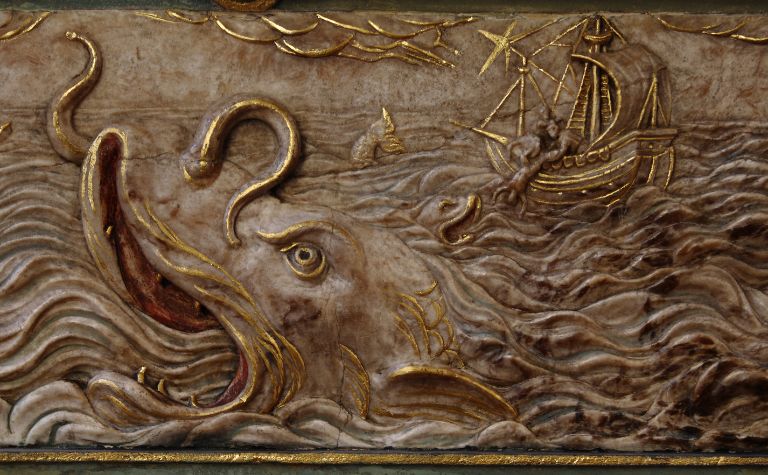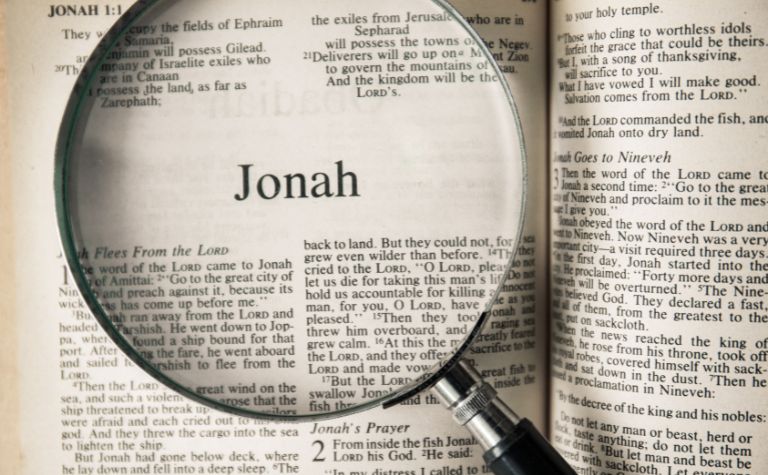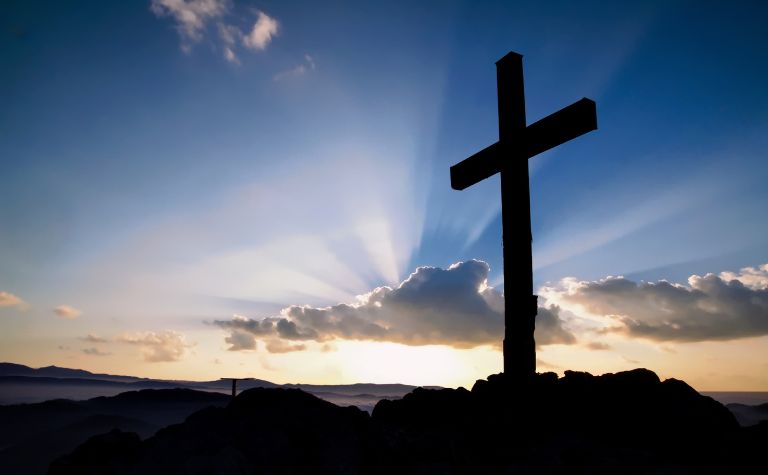The Gospels reveal that Jesus Christ knew the Old Testament well. He quoted it, alluded to it, and taught from it several times. Jesus cited events from the Old Testament, like the creation of the universe, Israel’s exodus from Egypt, and the lives of Abraham, Moses, and David. He also referred to the story of Jonah and the big fish.
When Jesus referred to the “sign of Jonah,” it alluded to his resurrection from the dead. Like Jonah spent three days in a fish, Jesus spent three days dead in a tomb. And like the fish ejected Jonah on the third day, giving him new life, Jesus defeated death on day three and rose to new life.
Who asked Jesus for a sign, and why? What’s the difference between a sign and a miracle? How is Jesus greater than Jonah? How are the Jewish leaders in Jesus’ day like the Ninevites in Jonah’s day? When Jesus was asked for a sign a second time, what did he say about the weather? Keep reading to learn the answers to these questions and others.
Also, see How Many Years Has It Been Since Jesus Died? to learn more.

What Does Jonah Have To Do With Jesus?
The Gospels reveal that many Jewish leaders at the time of Jesus were skeptical of his identity as the Messiah. Though some saw him perform miracles, they also wanted to see a supernatural act that was more significant, so they requested a “sign.”
A sign was a miracle that directly fulfilled an Old Testament prophecy. They asked for one in order to remove all their doubts about his identity (Matt. 12:38, ESV). In response, Jesus denied their immediate request but announced that another kind of sign was imminent.
Three days and three nights
Jesus said, “An evil and adulterous generation seeks for a sign, but no sign will be given to it except the sign of the prophet Jonah. For just as Jonah was three days and three nights in the belly of the great fish, so will the Son of Man be three days and three nights in the heart of the earth” (Matt. 12:39-40, ESV).
Matthew scholar R.T. France writes, “Jesus’ response is not very accommodating. The only sign he offers is cryptic and, worse, is still set in the future so that it can be of no help to them now… It is not so much an answer as it is a counter challenge.” [1]
The Jewish leaders making the request were part of a godless generation. Many were faithless and self-righteous. So their wish wasn’t Jesus’ command.
Moreover, the Bible teaches elsewhere that without faith, it’s foolish to seek signs from God (cf. 1 Cor. 1:22). Their problem wasn’t a lack of proof but a lack of belief.
Also, see Why Did Jesus Curse the Fig Tree? to learn more.

Jesus is greater than Jonah
Jesus referred to the part of Jonah’s story in which he was in a big fish for multiple days. “Now the Lord had appointed a great fish to swallow Jonah, and Jonah spent three days and three nights in the belly of the fish” (Jonah 1:17, ESV). Finally, after three days, the fish vomited Jonah onto the dry ground (Jonah 2:10).
God commissioned Jonah to preach repentance to the Ninevites (Jonah 1:2). But because Jonah refused to obey him, God appointed a fish to swallow him (Jonah 1:17). According to Jesus, what happened to Jonah signals a future event in his ministry.
Like Jonah’s ejection from the fish was a sign to the Ninevites, Jesus’ resurrection was a sign to the evil and adulterous generation: God alone has the power over life and death. And in his graciousness, he calls sinners, like the Ninevites and Jewish leaders, to repentance.
Like God saved Jonah from death, he saved Jesus from death, but in a more significant way: “something greater than Jonah is here” (Matt. 12:41a). Jonah’s second chance at life foreshadows Jesus’ resurrection from the dead.
New Testament scholar Grant Osborne explains: “Jesus is as ‘greater than Jonah’ as the Messiah is greater than a prophet and as the Son of God is greater than one of God’s children.” [2]
R.T. France adds, “If ‘something more/greater’ than all these key authorities is now present, and if, moreover, all their functions have now been brought together into a single person, Jesus’ questioners have a thought-provoking basis on which to consider the question of his authority.”
He continues, “Temple and priesthood, prophet, king, and wise man — something greater is now here.” [3]
Also, see Who Did Jesus Raise from the Dead? to learn more.

The Jewish Leaders Ask For A Sign Again
Jesus wasn’t the Messiah that the Jewish leaders wanted. He adamantly refused their request for a sign the first time they asked, yet they made a similar request later in his ministry. “And the Pharisees and Sadducees came, and to test him they asked him to show them a sign from heaven” (Matt. 16:1).
Matthew uses the word “test” to describe this request from the Jewish leaders, which may signal increasing tension. The other time in the Gospel that Jesus experienced testing, Satan was doing it.
Though many Bible translations say Satan “tempted” Jesus (Matt. 4:1), it comes from the same Greek word (peirazó, πειράζω) translated as “tested” in Matthew 16:1. As Jesus’ death on the cross gets closer, he is tested more (see Matt. 19:3, 22:18, 22:35).
In his response, Jesus doesn’t repeat the section of Jonah that refers to him being in the fish for three days and three nights. Instead, he uses an expression about observing the sky to predict the weather.
Jesus said, “When it is evening, you say, It will be fair weather, for the sky is red. And in the morning, It will be stormy today, for the sky is red and threatening. You know how to interpret the appearance of the sky, but you cannot interpret the signs of the times” (Matt. 16:2-3, ESV).
His point is that they can’t “read” the signs of the Messiah’s arrival like they can “read” the sky.
Next, Jesus refers to the evil generation of the Jewish leaders and the sign of Jonah. “An evil and adulterous generation seeks for a sign, but no sign will be given to it except the sign of Jonah. So he left them and departed” (Matt. 16:4, ESV).
Like Jonah experienced new life after the fish swallowed him, Jesus would too after death “swallowed” him. However, Jesus’ resurrection is greater because he was truly dead for three days, while Jonah wasn’t, and his death earned salvation for all who will repent and believe in him (Mark 1:15).
Also, see Who Walked on Water with Jesus? to learn more.
References:
[1] The Gospel of Matthew by R.T. France. NICNT. p. 487.
[2] Matthew by Grant Osborne. ZECNT. p. 486.
[3] France. p. 493.
Related Questions
Regular Bible reading is a valuable habit, as Scripture is God's message to people. However, the Bible's 66 distinct books, featuring various authors, settings, and themes, can make it challenging...
There are 66 individual books in the Bible. There are 39 in the Old Testament and 27 in the New Testament. Many readers can read the shortest books in the Bible in 5 to 10 minutes. The longest book...
